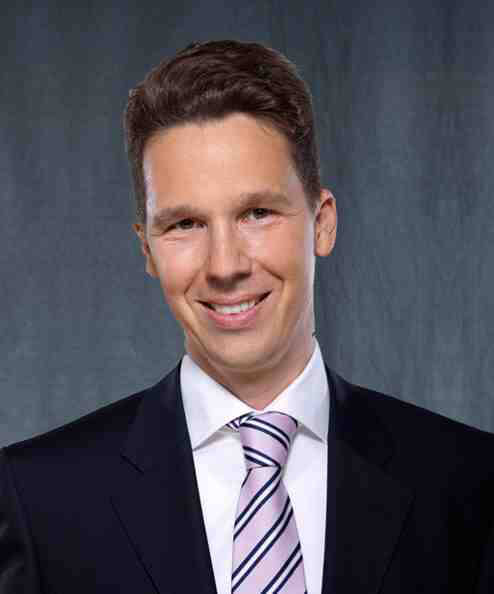Implementation of projects with Strategic Leadership Coaching, “HRweb”
Vienna, Austria – Nowadays, corporate changes take place mostly within change management projects. Many of these projects fail because of employee resistance and inadequate monitoring measures. However, Strategic Leadership Coaching takes executives through a variety of methods used deliberately to implement projects successfully.

Managers often implement massive, complex projects. They must therefore expect a lot of resistance at various levels from the very beginning if they are to drive effective changes in the company.
In this context, the “lost in the company” phenomenon is often encountered, with an abundance of tasks which do not focus on the essentials. The setting of clear targets, progressive implementation and committed involvement are therefore important challenges.
Strategic Leadership Coaching helps to create a framework for the project, by using diverse and creative methods to drive processes to successful completion of the matter at hand.
For the successful implementation of the project, managers must be strategically positioned, and must be able to draw upon their internal and external communication skills, and take a sovereign, personal, process-oriented approach.
The difference between Strategic Leadership Coaching and classical individual coaching is that the individual approach brings only partial success. However, Strategic Leadership Coaching implements a multi-channel approach of Coaching, Personal Development (PD), Organisational Development (OD), Communication, and Creativity, and thus achieves the greatest success in project implementation.
A recent large-scale project – which was met with massive internal resistance – aimed to find new, creative approaches to the sparring battles between responsible managers, in order to attend to the necessary processes on the ground and produce clear and visible outcomes.
A simple analysis of the facts showed that the use of an extended coaching unit was required to establish the current situation, since a structured position with the customer was developed, clarifying the coaching unit's position and that of the relevant players in the project. Multiple conflict lines, motivations and taboos were visible, and structure was brought to the topics as well. Finally, the results were used to influence a specific plan which incorporated the subsequent defined procedure.
Afterwards, the key stakeholders were involved by means of deliberate inclusion of the existing conflicts. "Stakeholder labs" were performed to contrast the positions of different stakeholder groups, and significant locations to hold the workshops were selected – for example, one workshop took place in the premises of a railway station, to symbolise the relationship between the company and group.
The participants were given freedom to take on different roles and perspectives, and together explore the motivations, interests and needs of the stakeholder group and the company. This protected the main conflict lines that were identified and could be resolved during the workshop.
As a next step, a "Company Round" was held to strengthen the active involvement of the entire company’s workforce, and their commitment to and collaboration on the larger picture. This interactive large group event was held in the company’s entrance hall. Initially, the management and project administration of the current status of the project were informed, and they answered questions from the staff and took feedback on the strategic and substantive considerations.
In a subsequent “Project Market,” project members worked on the individual project statuses of those interested in questions and answers, and took tangible ideas and notes. Eventually, all employees were invited in small teams to a "Project Lab" – almost as part-time project team members – to develop particular ideas.
During the entire event, employees completed surveys with specific questions about the project. The results were summarised graphically and recorded at different locations via live visualisation.
The project monitoring was just one task carried out by the project group working on the company-wide project. It succeeded in raising employee commitment to the project; everyone got involved, understood themselves as an integral part of a big family and considered what contribution they could make. The project’s goals could be achieved extremely successfully by the whole enterprise. Finally, the project was completed on time, and was followed by a definite project implementation.
The essence of Strategic Leadership Coaching consists of a different, continual and tailored approach to the company’s operations. In just a few weeks, the internal acceptance of the project through the commissioning and development of the procedural architecture was dramatically increased. Only through the interaction of the different approaches the success of the whole project was achieved.
Conrad Pramboeck, Head of Compensation Consulting at Pedersen & Partners, interviews Marie-Theres Euler-Rolle and Tanja Dobart from www.accompany.at.
 Conrad Pramböck is the Head of Compensation Consulting at Pedersen & Partners. Based in Vienna, Austria, he is responsible for consulting companies on all aspects of compensation, including providing companies with up-to-date market information on salary ranges and design of bonus systems across all industries and geographies. Prior to joining the firm, Mr. Pramböck held several senior positions in international consultancy firms. He started his career with a German Consultancy firm working in management consulting and later in the Compensation Consulting business unit based in Austria. For the following seven years he worked with one of the top Austrian Executive Search firms as the Head of Compensation Consulting. He was responsible for all international compensation consulting activities and developed and maintained an international compensation database in 40 countries.
Conrad Pramböck is the Head of Compensation Consulting at Pedersen & Partners. Based in Vienna, Austria, he is responsible for consulting companies on all aspects of compensation, including providing companies with up-to-date market information on salary ranges and design of bonus systems across all industries and geographies. Prior to joining the firm, Mr. Pramböck held several senior positions in international consultancy firms. He started his career with a German Consultancy firm working in management consulting and later in the Compensation Consulting business unit based in Austria. For the following seven years he worked with one of the top Austrian Executive Search firms as the Head of Compensation Consulting. He was responsible for all international compensation consulting activities and developed and maintained an international compensation database in 40 countries.
Pedersen & Partners is a leading international Executive Search firm. We operate 56 wholly owned offices in 52 countries across Europe, the Middle East, Africa, Asia & the Americas. Our values Trust, Relationship and Professionalism apply to our interaction with clients as well as executives. More information about Pedersen & Partners is available at www.pedersenandpartners.com
If you would like to conduct an interview with a representative of Pedersen & Partners, or have other media-related requests, please contact: Diana Danu, Marketing and Communications Manager at: diana.danu@pedersenandpartners.com
